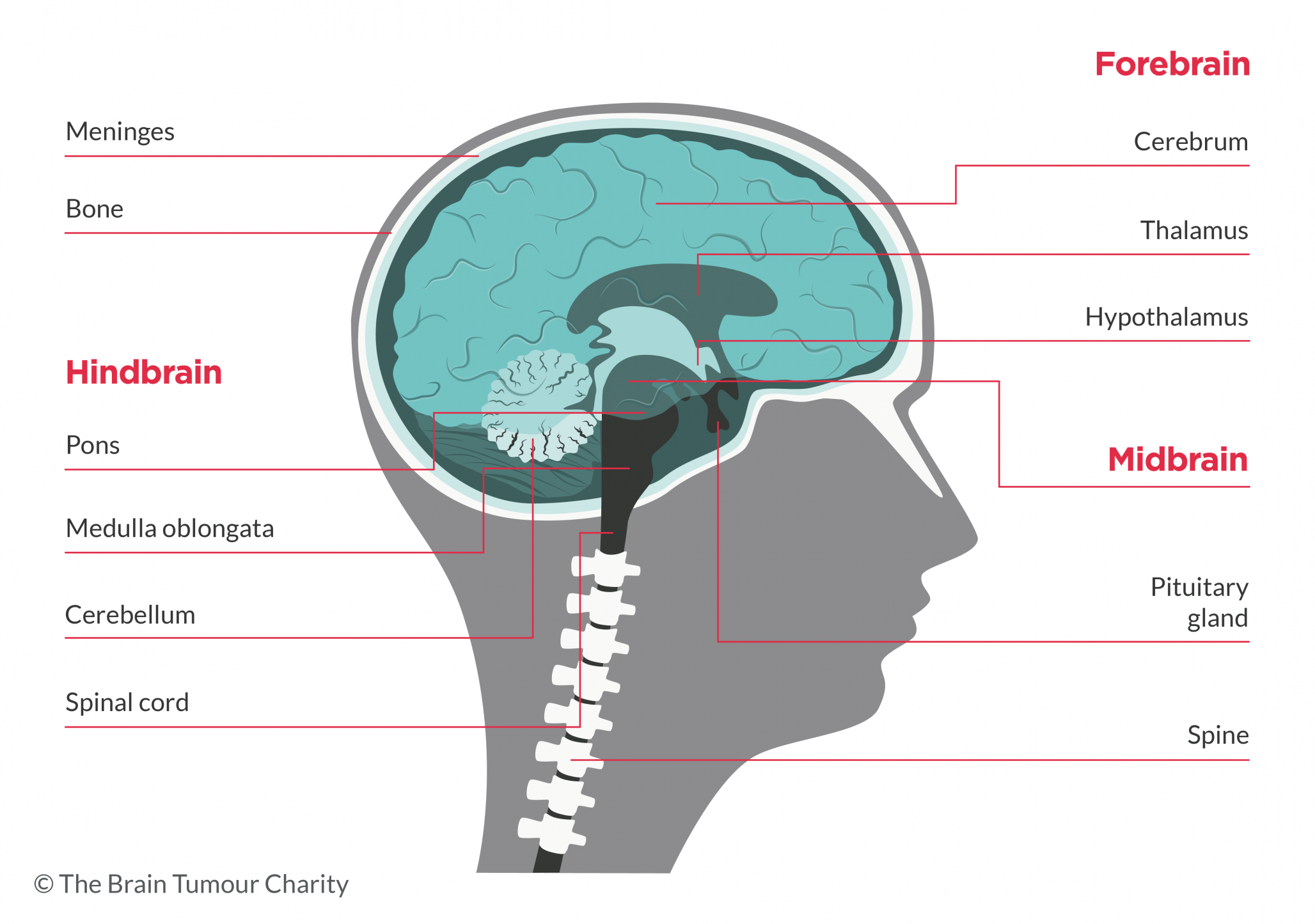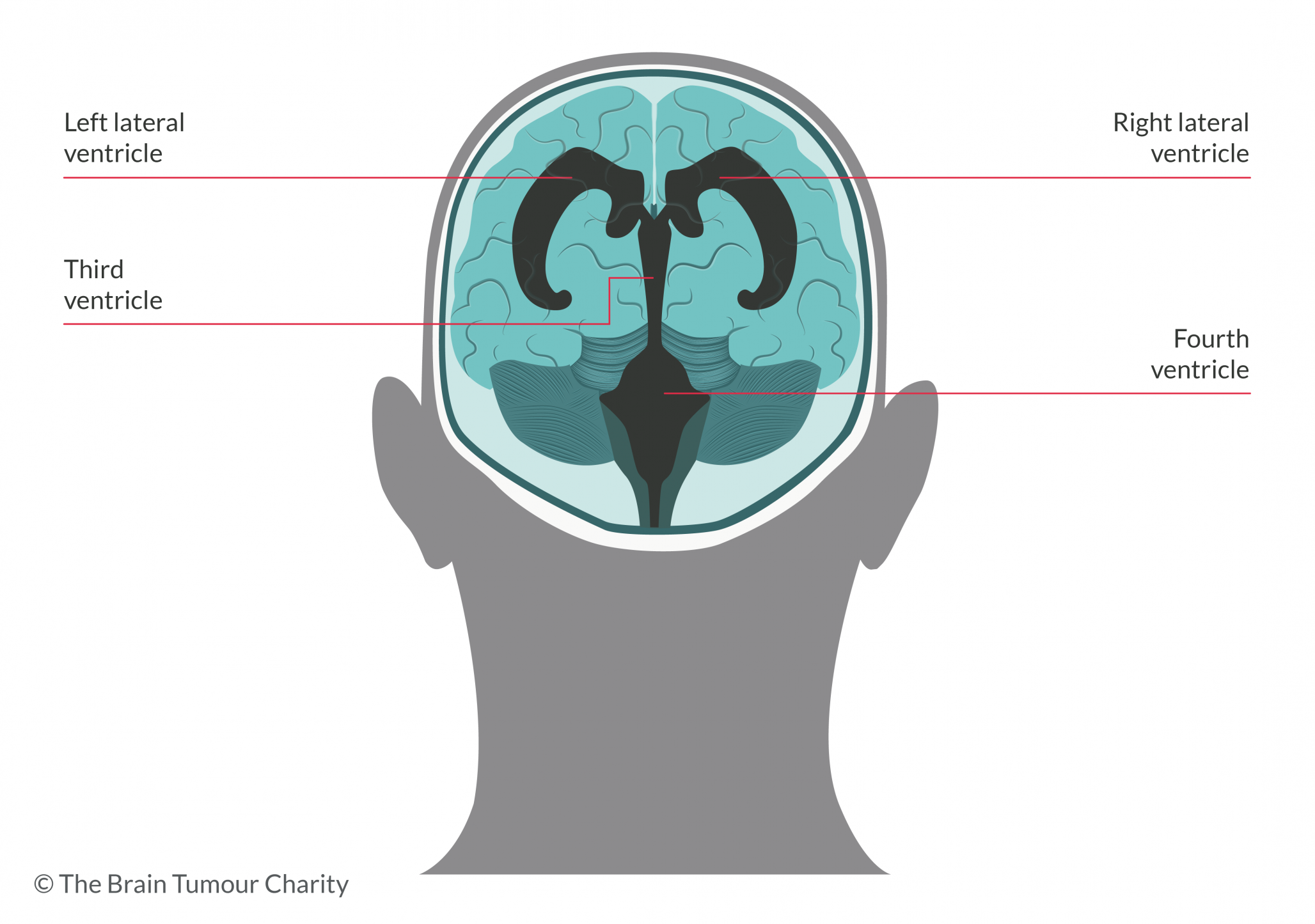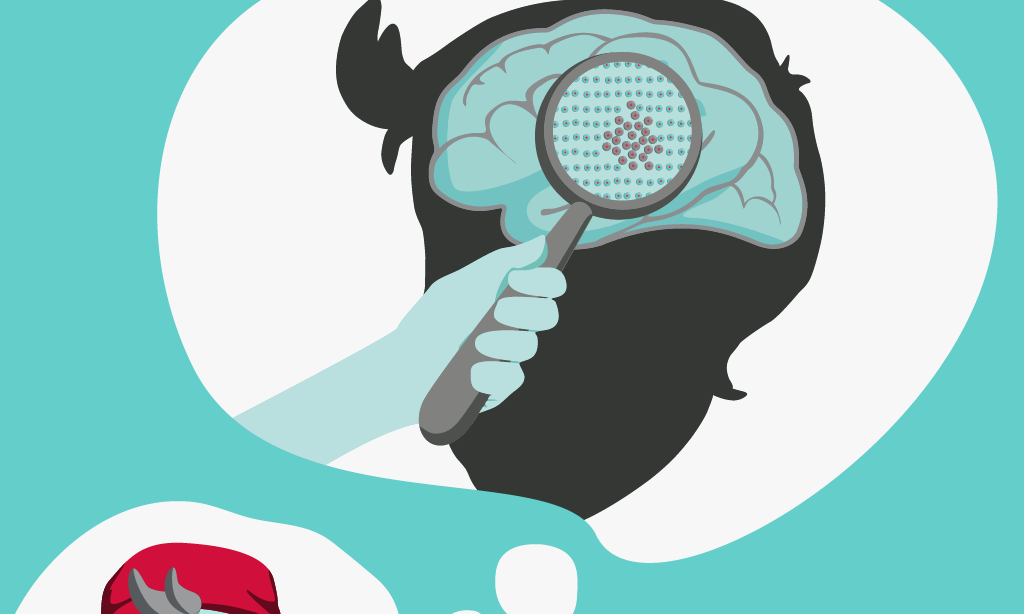Pineoblastoma
A pineoblastoma is a high grade (cancerous – grade 4), fast growing tumour of the pineal region at the centre of the brain. While pineoblastomas can affect anyone, they are mostly diagnosed in people under 20 years old.
Short summary
A pineoblastoma is a brain tumour that appears in the brain’s pineal region. This is the deep central area of the brain where the two halves of the brain meet.
Pineoblastoma is a primary brain tumour, meaning that it starts in the brain as opposed to spreading there. It is a high grade brain tumour – grade 4 – which means it is cancerous. This type of tumour is rare, with less than 1% of brain tumours forming in the pineal region.
Pineoblastomas are more common in children than adults, mostly affecting people under 20. Symptoms include pressure in the skull, headaches, nausea, and abnormal eye movements. Radiotherapy is the most common treatment, but treatment can also be chemotherapy, surgery, steroids, or a combination of these.
On this page, we’ll discuss in more detail:
Get support
It’s normal to feel shocked if you or someone you know has been diagnosed with a brain tumour. Our Support Team can answer questions you have or provide a listening ear if you need one.
Get your free Information Pack
Our Brain Tumour Information Pack can help you better understand your diagnosis and feel confident talking to your medical team.
Join our online support groups
Our online support groups are a great place to connect with other people affected by a brain tumour.

What is a pineoblastoma?
Pineoblastoma is one of a dozen different tumours that can present in and around the pineal area of the brain. This is the section just behind the brain stem in the middle of the brain.
It originates from embryonal cells which were left behind from the time the person was a developing fetus. Healthy embryonal cells go on to differentiate and play a part in the growth of body parts such as the pineal gland and retina. In the case of pineoblastomas these cells have divided incorrectly causing an abnormal growth or tumour.
A pineoblastoma is high grade (cancerous – grade 4) type of brain tumour.
Although these tumours can occur at any age, they are predominantly diagnosed during the first two decades of life.
Pineoblastoma symptoms
Here are some of the possible pineoblastoma symptoms:
Hydrocephalus
Due to their position, pineoblastomas often cause hydrocephalus. This is a build-up of pressure within the skull.
These tumours are usually located close to the third ventricle (see diagram below). In this position they can block the cerebro-spinal fluid (CSF) surrounding the brain from draining away.
Headaches and nausea
The build-up in pressure (hydrocephalus) can also lead to headaches and feeling, or being, sick.
Abnormal eye movements
Pineoblastoma symptoms often also include abnormal eye movements.

Pineoblastoma treatment
After a pineoblastoma is diagnosed through scans and/or a biopsy, your MDT will consider the best treatment option for you.
Pineoblastoma treatment can include one or more of the following:
- Surgery
- Radiotherapy
- Chemotherapy
- Steroids
Surgery and steroids
Surgery is an essential part of brain tumour treatment in general. It can aim to to reduce the size of the tumour or remove it completely.
However, due to the position of pineoblastomas deep within the brain, surgery may not always be a viable option. There could be a risk of damaging critical areas of the brain.
Even if doctors deem that surgery is possible for a pineoblastoma, in most occasions it does not result in complete resection. This is because pineoblastomas, which are grade 4 tumours, may have already invaded other, difficult to reach parts of the brain or spine.
Due to the swelling and pressure on the brain, you may have surgery to drain the buildup of fluid. Some neurosurgery centres offer a minimally invasive procedure called endoscopic third ventriculostomy which which will not require surgery.
Steroids may also be prescribed to manage swelling associated with hydrocephalus.
Radiotherapy and chemotherapy
Radiotherapy is the gold standard of treatment for pineoblastomas. Depending on factors such as whether cancerous cells have spread to other parts of the brain, your MDT will decide the type of radiotherapy you will have and at which dose.
Pineoblastomas may also be treated with chemotherapy.
Pineoblastoma prognosis
Prognosis can be difficult to read about. So, if you are not ready to approach this, please skip over the drop-down below.
-
Pineoblastomas are rare brain tumours. But, unfortunately, they are difficult to treat in the people who do develop them.
Sadly, less than 10% of the children under the age of four with these brain tumours live for five years or more.
However, over 60% of people aged over four years live for five years or more.
These figures are given in 5 year intervals because doctors use these to track survival rates. But, they aren’t supposed to represent life expectancy. For example, a 5 year survivor could live for many more years after this interval.

Join our online support group
Our online support group for parents is a great place to connect with other parents affected by a brain tumour and share your experiences.
Support and Information Services
Research & Clinical Trials Information
You can also join our active online community.
In this section

Get support
If you need someone to talk to or advice on where to get help, our Support and Information team is available by phone, email or live-chat.
Get your free Brainy Bag
Our Brainy Bag is a free gift for children and young people who have been diagnosed with a brain tumour, made up of a range of handpicked toys and activities!
Recommended reading
Share your experiences and help create change
By taking part in our Improving Brain Tumour Care surveys and sharing your experiences, you can help us improve treatment and care for everyone affected by a brain tumour.
